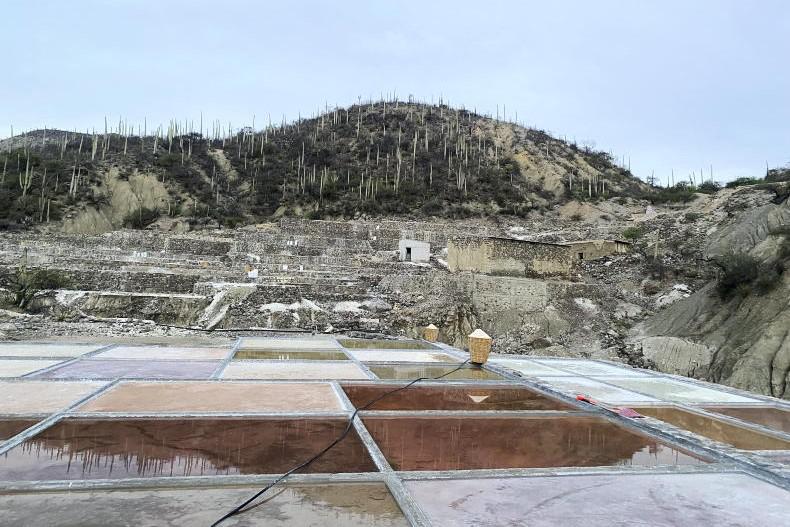In late 2022 I was awarded a Nuffield Scholarship, the journey of which commenced in spring 2023.
My initial research topic was that of future-proofing a 45ha farm through diversification.
I was drawn to farm diversification because I am an organic beef suckler farmer living in rural Ireland and economic viability was at the forefront of my mind since returning to the family farm in 2012.
I focused my research travels specifically on farms that had diversified into agri-tourism and agri-food enterprises because this is where my interest lay.
In addition, I saw it as a natural fit with farms of that size, a cohort to which I belong.
The National Farm Survey 2023 highlights that the average farm size in Ireland is 46ha and that 41% of farms are classified as sustainable only thanks to off-farm income.
I personally questioned why it was that as farmers we were put in that position where we had to consider an off-farm income to be sustainable and why our farms couldn’t support multi-generational growth.
Additionally, were we failing a ‘just transition’ where “no farmer should be left behind” as we forge our way to a carbon neutral society.
Global research
I wanted to go see the best of the best internationally, including our nearest neighbour. I visited numerous farms on Vancouver Island, in Seattle, Mexico, Texas, the Cotswolds, Yorkshire, Tuscany, Slovenia and Croatia.
They ranged from lavender farms to wineries, cideries, cheese makers, truffle farmers, olive oil farmers, event spaces, accommodation providers, farm shops, drive-through farm shops and wedding spaces – the list is endless.

These success stories all benefited from government policies to support their growth and development at national, regional or local levels.
In addition, the food experience of these destinations was always front and centre of the visitor experience. As my research topic evolved, I became curious as to why these countries were so successful in this regard.
And the answer is simple, the policymakers had identified the opportunity that lay in the natural synergies that exist between agriculture and tourism.
They had brought all the actors to the table and recognised the need for product development in rural areas to achieve a number of objectives.
Principally, drive tourism beyond the traditional peak season (July/August in Ireland’s case), thus extending seasonality and developing rural communities; in some cases taking the pressure off high-density visitor hotspots.
Globally, agri-tourism is on a major growth surge and is projected to be worth $80bn €77.5bn by 2028.
The increase in government initiatives towards agri-tourism farms is driving the growth of the agri-tourism market internationally.
The importance of tourism to local and regional economies cannot be understated. Tourism contributes to the economic and social fabric of the island of Ireland.
It is a leading creator of jobs and revenue, and one of the few sectors alongside agriculture that has the potential to significantly benefit remote rural areas.
Combining agriculture and tourism, in my view, paves the way for rural prosperity.
Adopting a national agri-tourism policy can create opportunities for additional income streams that will support multi-generational farms by improving their economic and social sustainability.

My travels showed me that our competitors are making huge inroads with investment in this area.
Formally framing agritourism into their policy landscape as a driving force for wealth creation in rural development.
Policy
We, on the other hand, are unable to readily identify who the actual players are, have no national agri-tourism policy to support the sector development and have no formal definition for agri-tourism.
For example, should it be on a working farm exclusively to cement authenticity? In every country visited or researched the starting point is clarity around this ambiguous question. Ireland has serious deficiencies in its agricultural and rural development landscape.
Not only does it lack a specific policy for agri-tourism, but it does not have a coordinated strategy of collaboration amongst all the relevant actors to support farmers.
It is my firm belief that we need as a matter of urgency to bring all the actors to the table including the Department of Agriculture, the Department of Tourism, county councils, local enterprise boards, Fáilte Ireland, Bord Bia, Teagasc, the Department of Heritage and farmers.
It is a prerequisite to have aligned, engaged and supportive stakeholders. We need funding support for financial and human resources with the right policy and regulatory environment.
We need access to quality insights and market trends. We need to focus on community, cultural, economic and environmental sustainability.
We need to position Ireland’s agri-tourism offering as an industry for the future designed to raise confidence, build capacity and inspire action.
*Nuffield Ireland 2023 scholar Margaret Edgill runs Mount Briscoe Organic Farm, a beef suckler and agri-tourism enterprise in Co Offaly. For her scholarship, Margaret chose to research a topic dear to her heart: farm diversification, specifically agritourism and how it can contribute to farm income and prosperity.
